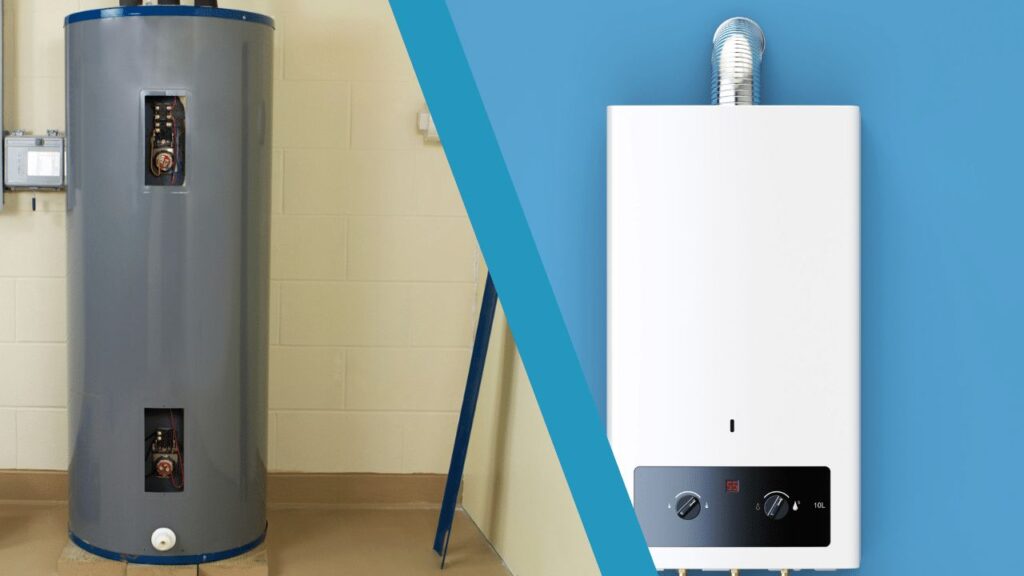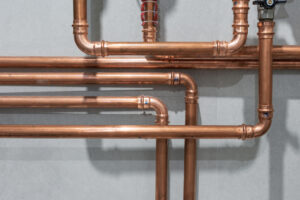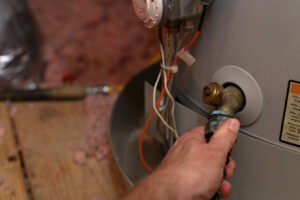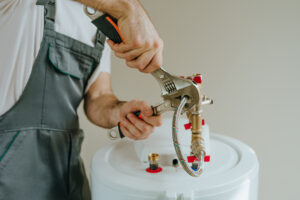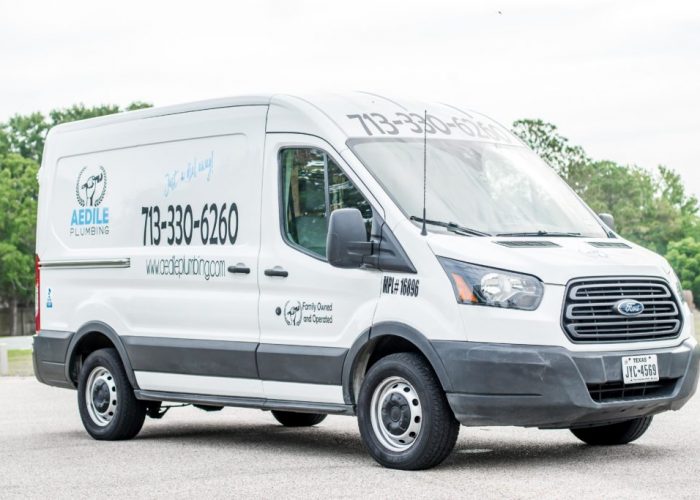When selecting the best water heater for your home, two options typically stand out: tankless water heaters and traditional water heaters. Each type brings its own set of benefits and challenges. Understanding these factors is key to making an informed choice. This blog will compare both types, helping you decide which best fits your home’s needs.
What Are Tankless Water Heaters?
Tankless water heaters, also known as on-demand water heaters, provide hot water only when needed. Unlike traditional models that store hot water in a tank, these units heat water as it flows through the system. Once you turn on the tap, hot water is ready. These systems can serve the entire house or supply hot water to specific fixtures like sinks or showers.
Tankless water heaters have become popular due to their energy efficiency and compact design. Here’s a closer look at their key advantages and drawbacks:
Pros of Tankless Water Heaters:
- Energy efficiency: Tankless water heaters heat water only when required. This eliminates the constant energy waste that happens in traditional water heaters, which keep water hot 24/7.
- Endless hot water: Since tankless systems provide hot water on demand, you won’t run out of hot water, even during long showers or when using multiple fixtures.
- Space-saving: Tankless water heaters are significantly smaller than traditional models. Their compact size makes them ideal for homes with limited space, such as apartments or homes with small utility areas.
- Longer lifespan: Tankless units tend to last much longer than traditional water heaters. With proper maintenance, they can last 20 years or more, while traditional units often last around 10-15 years.
Cons of Tankless Water Heaters:
- Higher upfront cost: One of the main drawbacks is the initial cost. Tankless water heaters are more expensive to purchase and install compared to traditional water heaters.
- Flow rate limitations: When multiple fixtures run simultaneously (for example, a shower, washing machine, and dishwasher), a tankless water heater may struggle to meet the demand for hot water.
- Installation complexity: Installing a tankless system can be more complex than traditional models. This is especially true if you’re upgrading from an older water heater, as it may require specialized venting and gas line modifications.
What Are Traditional Water Heaters?
Traditional water heaters, also referred to as tank water heaters, store and heat a large volume of water. They typically hold between 30 to 80 gallons of water, keeping it hot until you need it. When you open a hot water faucet, the system draws hot water from the tank, replenishing it and reheating to maintain the desired temperature.
Traditional water heaters remain a popular choice due to their reliability and ease of use. Let’s dive into the pros and cons of traditional models:
Pros of Traditional Water Heaters:
- Lower upfront cost: Traditional water heaters cost significantly less to purchase and install compared to tankless systems. This makes them a more budget-friendly option, especially for homeowners looking for an affordable solution.
- Reliable for large households: These systems are great for larger families or homes with high hot water demand. Since they store a large amount of water, they can provide a steady supply of hot water, even during peak usage times.
- Simple installation: Traditional water heaters are straightforward to install. This simplicity makes them a convenient choice for replacement or new construction, as the installation process doesn’t require much additional work.
Cons of Traditional Water Heaters:
- Energy inefficiency: Traditional water heaters continuously keep water heated, even when not in use. This “standby heat loss” increases your energy bills, especially if the tank is large.
- Limited hot water supply: Once the hot water in the tank runs out, you must wait for it to refill and reheat. This can be inconvenient, especially in homes with high demand for hot water in a short time.
- Bulky size: Traditional water heaters are large and take up significant space in your home. This can be an issue for smaller homes or properties with limited utility space.
Tankless vs. Traditional: Which Should You Choose?
When choosing between a tankless water heater and a traditional water heater, several factors come into play, including the size of your home, hot water usage, and budget.
- Tankless water heaters are perfect for homes with limited space. They also make sense if you want to reduce long-term energy costs and don’t mind a higher initial investment. Tankless systems are ideal for smaller households or homes that use hot water for only one or two fixtures at a time.
- On the other hand, traditional water heaters are better for homes with higher water demand. If you have a larger family or need hot water for multiple fixtures running simultaneously, a traditional system may be the more reliable choice. Although it requires a larger upfront cost, the consistent supply of hot water makes it an attractive option for many homeowners.
Conclusion
Both tankless water heaters and traditional water heaters offer distinct advantages, depending on your specific needs. Tankless systems provide energy efficiency, endless hot water, and a compact design, but come with a higher upfront cost and installation complexity. Traditional systems are reliable, cost-effective, and simple to install, but they can be less energy-efficient and take up more space.
At Aedile Plumbing, we specialize in helping homeowners select the right water heater for their specific needs. Whether you’re considering a tankless or traditional water heater, our expert team can assist with installation, maintenance, and repairs. Contact us today to learn more and find the best solution for your home!

